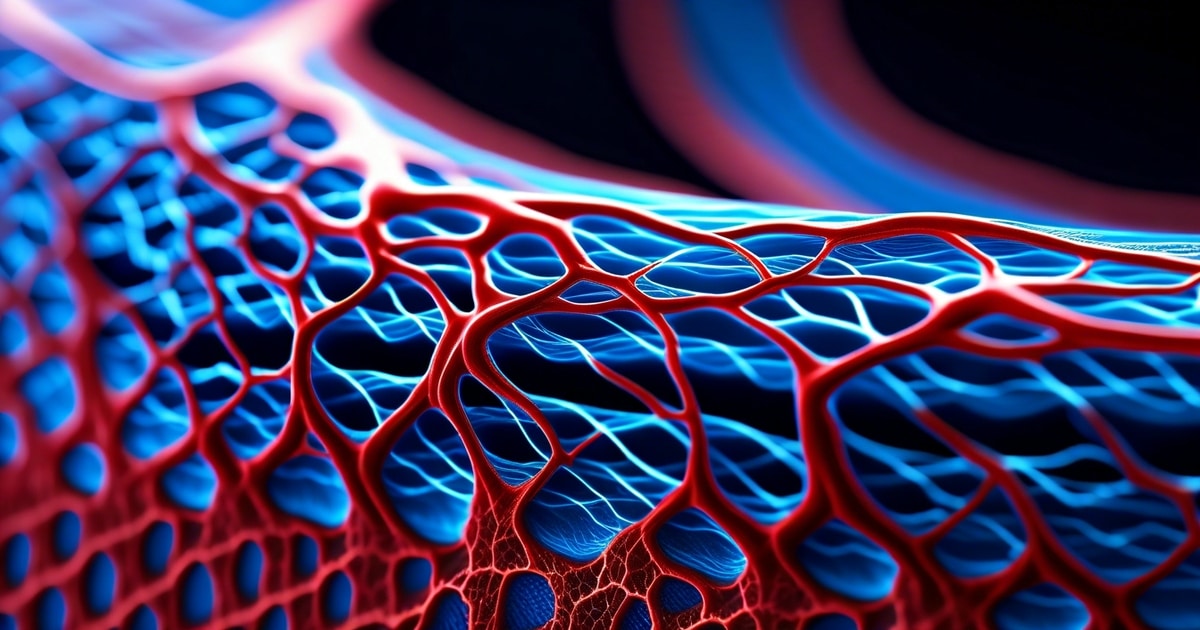Key Takeaways
Consider Horse Chestnut: Horse chestnut may offer a natural treatment option for managing varicose veins, especially when combined with compression stockings. The seed extract of horse chestnut has shown potential in reducing edema associated with varicose veins. Consider discussing the clinical use of the treatment option with a healthcare professional for personalized advice on patients.
Research suggests that compression stockings can effectively reduce the symptoms of varicose veins, such as swelling and pain. Compression stockings have been shown to provide health benefits and alleviate edema. Look for standardized horse chestnut products for potential benefits.
Safety First: While horse chestnut treatment may relieve patients, knowing the potential side effects and interactions with other medications in placebo-controlled trials is crucial. Prioritize safety by consulting a healthcare provider before using horse chestnut seed extract supplements. This is especially important for patients considering these supplements as an alternative treatment. It is also worth noting that some studies have shown that horse chestnut seed extract may be more effective than a placebo in reducing symptoms. Still, it is important to consult with a healthcare provider to assess potential adverse events.
Symptom Relief: If you experience chronic venous insufficiency (CVI) and related symptoms, exploring the use of horse chestnut under medical guidance could alleviate discomfort and improve your quality of life. Compression stockings can also be an effective treatment for CVI, helping to reduce edema and provide relief.
Holistic Approach: Integrating horse chestnut seed extract into a comprehensive treatment plan, including lifestyle modifications and medical interventions, can contribute to a holistic approach to managing varicose veins, edema, and chronic venous insufficiency (CVI). This may involve the use of compression therapy as well.
Stay informed about the latest research findings and expert insights on using horse chestnut seed extract to treat chronic venous insufficiency (CVI). Make well-informed decisions about your healthcare based on studies conducted on this natural remedy.
Horse chestnut seed extract, a centuries-old natural remedy, holds the potential to treat varicose veins and edema caused by chronic venous insufficiency (CVI). These swollen and twisted veins, commonly found in the legs, often lead to discomfort and pain caused by edema, compression, CVI, and pruritus. This article delves into the benefits of horse chestnut seed extract for varicose vein treatment. Horse chestnut seed extract contains a compound called aescin, which effectively reduces edema and improves symptoms of chronic venous insufficiency (CVI). By exploring the impact of compression treatment on leg volume, blood flow
A review of 17 studies observed that horse chestnut seed extract could help reduce inflammation and swelling in the legs and feet related to CVI (2).
, and symptoms like edema, ankle swelling, and itching; we aim to provide valuable insights into the effectiveness of this traditional yet intriguing solution. Numerous studies have investigated the benefits of compression treatment for edema. Let’s uncover how horse chestnut’s key component, aescin extract – derived from its seeds – may offer relief for those dealing with varicose veins and chronic venous insufficiency (CVI). This natural treatment can help reduce edema and improve symptoms.
Understanding Varicose Veins and Their Causes

What Are Varicose Veins?
Varicose veins, or CVI, are swollen, enlarged veins that usually occur on the legs. Compression is a common treatment for this condition to reduce edema. They develop when the valves in the veins become weak or damaged, leading to blood pooling and causing edema, leg pain, and the veins to enlarge. This can be managed with compression for CVI. This condition can result in discomfort and aching.
These swollen veins and edema can cause leg pain and cosmetic concerns. It is important to seek treatment for this condition, as it may be a sign of chronic venous insufficiency (CVI). People with varicose veins may experience pain, swelling (edema), heaviness, itching, and leg fatigue. It is important to consult a medical professional specializing in chronic venous insufficiency to treat these symptoms effectively. In some cases, varicose veins can lead to more severe complications like skin ulcers or blood clots. These complications may require CVI treatment and can cause leg pain. Numerous studies have been conducted on the treatment of CVI and leg pain.
Risk Factors for Varicose Veins
Several factors contribute to the development of varicose veins. These risk factors for varicose veins include age, gender (women are more likely to develop varicose veins), pregnancy due to increased pressure on the legs from the growing uterus, obesity, which puts extra pressure on your vein, and prolonged standing or sitting, which hinders proper blood circulation. Studies have shown that treatment with CVI extract can effectively manage varicose veins.
Age is one of the primary risk factors for developing varicose veins and CVI. Studies have shown that leg pain can be a symptom of CVI and requires treatment. As people get older, studies show that they are more likely to experience leg pain due to CVI. This condition occurs when blood vessels lose elasticity and do not work as effectively as they used to. Med can help alleviate the symptoms.
Overview of Horse Chestnut’s Medicinal Properties
Active Compounds and Anti-Inflammatory Effects
Horse chestnut seeds contain anti-inflammatory saponins, making them a potential treatment option. Studies have shown that horse chestnut extract may be effective in reducing inflammation. In some studies, a placebo was used as a control group to compare the effects of the extract. These chestnut extract compounds are known for reducing inflammation in the body, making them beneficial for conditions like varicose veins. The treatment with chestnut seed extract has shown promising results compared to a placebo. When applied or ingested, chestnut seed extract can help alleviate discomfort and swelling associated with varicose veins. The treatment has been proven effective in clinical trials, outperforming the placebo.
The saponins in horse chestnut also possess vasoconstrictive properties. This means that treatment can help to narrow blood vessels, improving circulation and reducing the pooling of blood often seen in varicose veins. Studies have shown that this treatment is more effective than a placebo in relieving symptoms. By doing so, horse chestnut aids in diminishing the appearance of these enlarged and twisted veins. This treatment extract is more effective than a placebo.
Therapeutic Applications and Available Forms
In herbal medicine, horse chestnut seed extract is commonly used to treat various circulatory health issues. It has shown positive effects in placebo-controlled studies. The extract is particularly effective in improving blood flow in the leg. The treatment is available in different forms, such as capsules, creams, and ointments. The extract can be used for its therapeutic properties. Some people may opt for a placebo instead of the treatment. From a medical point of view, it is important to consider the best course of action. The use of horse chestnut extract allows individuals to benefit from the antioxidant-rich properties of this natural treatment while targeting specific areas affected by varicose veins. By incorporating this extract into their routine, individuals can experience the potential benefits of this natural treatment in alleviating leg discomfort. Additionally, it is important to note that the effectiveness of horse chestnut extract has been studied in clinical trials and is more effective than a placebo treatment.
A horse chestnut extract cream or ointment to treat varicose veins provides localized relief from symptoms such as pain and swelling. This treatment is effective in clinical trials and outperforms placebo. The cream can be applied directly on the affected leg for optimal results. On the other hand, taking oral supplements like capsules ensures that the body receives systemic support for overall vascular health. This treatment method is effective as it provides the necessary support through extracts. Additionally, it is important to note that this method does not rely on using placebos, providing a genuine and beneficial view on improving vascular health.
Effectiveness of Horse Chestnut in Treating Varicose Veins
Symptom Relief
Trials view that horse chestnut extract may reduce symptoms associated with varicose veins, such as pain and swelling, compared to a placebo. The extract of horse chestnut, containing the active compound aescin, has been found to have anti-inflammatory properties. This extract can alleviate discomfort caused by varicose veins. Placebo trials have provided evidence supporting this view. Using horse chestnut extract could relieve these symptoms for individuals experiencing the discomfort of swollen and painful veins. Placebo trials view the efficacy of horse chestnut extract.
Horse chestnut extract has been shown in placebo trials to improve blood circulation and strengthen vein walls. The evidence supports this view. By enhancing blood flow and reducing inflammation, the placebo may decrease swelling and pain associated with varicose veins. Given this, clinical trials have been conducted to test the effectiveness of the placebo in treating varicose veins. This improvement in circulation is vital for those suffering from this condition as it helps alleviate the pressure on the affected veins. This improvement has been observed and confirmed in clinical trials from a placebo perspective. This positive view on the effects of improved circulation offers hope to individuals with this condition.
Individual Response
The effectiveness of horse chestnut in treating varicose veins may vary depending on the severity of the condition and individual response. Placebo-controlled trials provide a reliable view of its effectiveness. While some individuals might experience significant relief from their symptoms after using a horse chestnut placebo, others might not find it as effective in clinical trials. This is a common view among researchers studying the effects of horse chestnut on various health conditions. It’s important to note that the results of varicose vein trials can differ based on various factors, including the stage of varicose veins and overall health conditions. The view of these trials is crucial in understanding the potential outcomes.
Research Findings on Horse Chestnut and Venous Insufficiency

Potential Benefits
Research trials suggest that horse chestnut extract may relieve individuals suffering from venous insufficiency. The evidence supports this view. Trials have shown that this natural supplement can improve the symptoms associated with poor blood flow in the veins, such as leg heaviness, cramps, and itching. View studies for more information. Horse chestnut could be a promising option for those with varicose veins to alleviate discomfort and enhance overall vein health. The trials conducted on horse chestnuts have shown their potential to improve the view of varicose veins.
One systematic review found that trials with horse chestnut were effective in reducing leg volume in patients with chronic venous insufficiency when compared to a placebo. This indicates its potential to address the swelling often experienced by individuals with this condition, providing a beneficial view for those participating in trials. Moreover, clinical trials have reported positive outcomes related to using horse chestnut as a treatment for venous insufficiency. This supports the efficacy of horse chestnut in treating venous insufficiency, providing a beneficial view.
Need for Further Research
Despite these encouraging findings, it’s important to note that more trials are required to comprehensively understand how horse chestnut works and its long-term effects on venous insufficiency. It is crucial to view more studies to understand horse chestnut’s effectiveness and impact on venous insufficiency. While existing research provides valuable insights into the benefits of this supplement, there is still a need for additional clinical trials and systematic reviews to confirm its effectiveness conclusively.
Future trials and studies need to focus on gathering adequate data regarding the methodological quality of research conducted thus far. This will provide a comprehensive view of the research landscape. Rudofsky et al.’s report highlights the importance of conducting thorough trials and utilizing evidence-based testing methods to obtain a comprehensive view of the impact of horse chestnut on venous insufficiency.
Safety and Side Effects of Horse Chestnut
Potential Side Effects
When using horse chestnut for varicose veins, it’s important to consider potential side effects. Viewing the results of clinical trials before starting any treatment is recommended. While generally considered safe, some individuals may experience stomach upset or itching during the view trials. These side effects are usually mild and temporary. However, when using horse chestnut, it’s important to stay vigilant for any adverse events during trials and to keep a watchful view.
Rare Allergic Reactions
Allergic reactions to horse chestnut can occur in sensitive individuals during trials. These reactions are rare but can be viewed by those conducting the trials. If you notice symptoms such as rash, hives, difficulty breathing, or any other adverse reactions after taking horse chestnut during trials, seek immediate medical attention. When conducting trials, it’s important not to overlook the possibility of uncommon allergic reactions.
Horse chestnut trials have shown that its active components contribute to potential benefits for venous insufficiency. However, these same components could also trigger adverse reactions in some individuals during the trials. Therefore, consulting a healthcare professional before using horse chestnut is highly recommended—especially if you have underlying medical conditions or are taking other medications.
Chronic Venous Insufficiency and Symptoms Relief
Symptomatic Relief
Chronic venous insufficiency (CVI) is a long-term condition that leads to leg swelling, skin changes, and ulcers. For individuals grappling with these symptoms, horse chestnut may offer some respite. This natural remedy has been found to improve blood flow and reduce leg inflammation, relieving those suffering from CVI.
Horse chestnut’s potential to alleviate symptoms of CVI can be attributed to its ability to address the condition’s root causes. Improving blood flow and reducing inflammation helps manage pain, swelling, and other discomfort associated with CVI. This natural treatment option has shown a significant reduction in leg pain and edema among patients dealing with chronic venous insufficiency.
Complementary Lifestyle Modifications
In conjunction with using horse chestnut for managing CVI symptoms, individuals can benefit from incorporating certain lifestyle modifications into their daily routine. Regular exercise is crucial in promoting healthy circulation and reducing the severity of CVI symptoms. Furthermore, the elevation of legs above heart level at regular intervals throughout the day can help alleviate discomfort caused by leg swelling.
Wearing compression stockings also complements the use of horse chestnut for managing chronic venous insufficiency symptoms. Compression therapy through specialized stockings aids in improving blood flow while minimizing swelling and discomfort associated with CVI.
Thoughts on Using Horse Chestnut for Varicose Veins

Potential Benefits
Research indicates that horse chestnut may relieve individuals dealing with varicose veins and venous insufficiency. It is believed to help alleviate symptoms and improve blood circulation in those affected by these conditions. For instance, swelling, pain, and itching associated with varicose veins might be reduced using horse chestnut. Similarly, individuals with venous insufficiency may experience improved blood flow and reduced discomfort.
Horse chestnut contains a compound called aescin, which is thought to have anti-inflammatory properties. This can be particularly beneficial for people with varicose veins, as it may help reduce swelling and pain. Aescin is believed to strengthen the walls of the veins, potentially improving their function and reducing the risk of further complications.
Professional Guidance
Before incorporating horse chestnut into a treatment plan, it is crucial to seek professional medical advice. While it shows promise as a natural remedy, individual circumstances and existing health conditions must be considered. Consulting a healthcare provider will ensure that the use of horse chestnut is safe and suitable for each person’s specific situation.
Professional guidance can also help determine the appropriate dosage and form of horse chestnut. This is essential to ensure its effectiveness while minimizing potential risks or side effects.
Frequently Asked Questions
Is horse chestnut an effective treatment for varicose veins?
Yes, horse chestnut has effectively reduced symptoms of varicose veins, such as swelling and pain. It contains compounds that help strengthen blood vessels and improve circulation, alleviating the discomfort associated with varicose veins.
What are the potential side effects of using horse chestnut for varicose veins?
Some individuals may experience minor side effects such as stomach upset or itching when using horse chestnut. However, these occurrences are rare and generally mild. It’s important to consult a healthcare professional before starting any new herbal remedy.
How does horse chestnut work in treating chronic venous insufficiency?
Horse chestnut reduces inflammation and improves vein elasticity, which can help alleviate symptoms associated with chronic venous insufficiency. Its active compound, aescin, has been found to promote healthy blood flow and reduce fluid leakage from weakened blood vessels.
Can I use horse chestnut cream or gel for varicose veins?
Topical applications of horse chestnut cream or gel are beneficial in relieving the discomfort caused by varicose veins. These products can help reduce swelling and improve circulation when applied directly to the affected areas.
Are there any precautions to consider when using horse chestnut for varicose veins?
Be cautious if you have allergies to plants such as latex or certain nuts since allergic reactions are possible. Pregnant women should avoid horse chestnut due to its potential impact on hormone levels.

